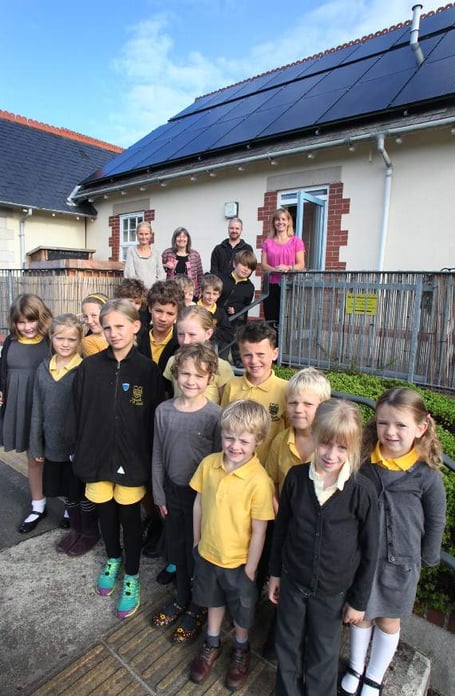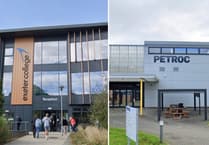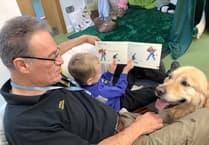AFTER nearly two years of hard work and tireless fundraising, Calstock Primary School is now enjoying free electricity after completing an ambitious mission to become a ‘Solar School’.
Following two years of fundraising, putting on countless events, sending more than 100 letters and ‘incredible support’ from the local community, 24 solar panels were installed on the school’s roof during the summer holiday by local electrician Antony Barker, who worked hard to get them all up before the children returned to school this month.
Calstock Primary joined the Solar Schools initiative — to purchase and install solar panels on the school’s roof — back in October 2014 and had to raise £17,000 to undertake the project.
The panels will generate up to 6kW of electricity, providing the school with free energy and an income from the Government’s Feed in Tariff.
Headteacher Sian Vaughan said: ‘This is a remarkable achievement, especially as we are a school with fewer than 90 pupils. Every child contributed in one way or another. Many of them came up with their own fundraising ideas and all of them participated in the events. They entered competitions, took part in a sponsored bike challenge, baked cakes, dressed up for non-uniform days and encouraged their families, friends and neighbours to get involved. I’m so proud of them all!’
Helen Randle, who instigated entering the Solar Schools scheme, said: ‘We received huge support from the community.’
People bought virtual solar tiles at £5 each, sold items and donated the proceeds, offered venues for free, donated raffle prizes, gave their time, skills, energy and, of course, their money! Parents and teachers also helped children at Calstock organise and join in activities, took collections in their workplace and wrote to local businesses. It was great that so many people were inspired by the idea.’
Now the panels are up, they can be used to demonstrate renewable energy. The monitor in the school office will show just how much energy the panels are generating and how much income this represents.
Reflecting on the last two years, Helen said: ‘It has been a long journey and it has not always been straightforward. The steep reductions to the Feed in Tariff in October last year, for example, have affected the return the school can expect, which is disappointing — especially when the Government should be promoting the use of solar power on public buildings (the school is owned by Cornwall Council).
‘The installation itself took longer than anticipated — planning permission, a procurement process and safety checks were needed and OFGEM (the Government regulator for the electricity and downstream natural gas markets in great Britain) changed the rules towards the end of the fundraising period.
‘Despite difficulties along the way, we are so pleased to have the panels finally on the roof. It’s good to know that our mini power station will provide cleaner energy for the next generation of children and beyond. Now we will be looking to make our school even greener.’





Comments
This article has no comments yet. Be the first to leave a comment.